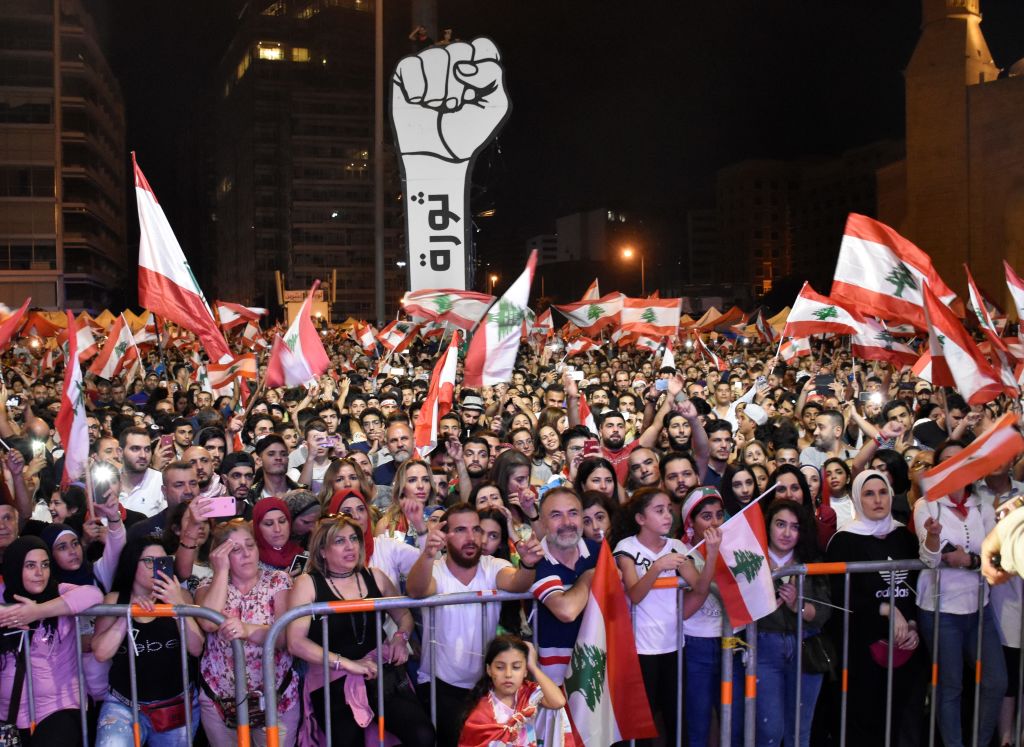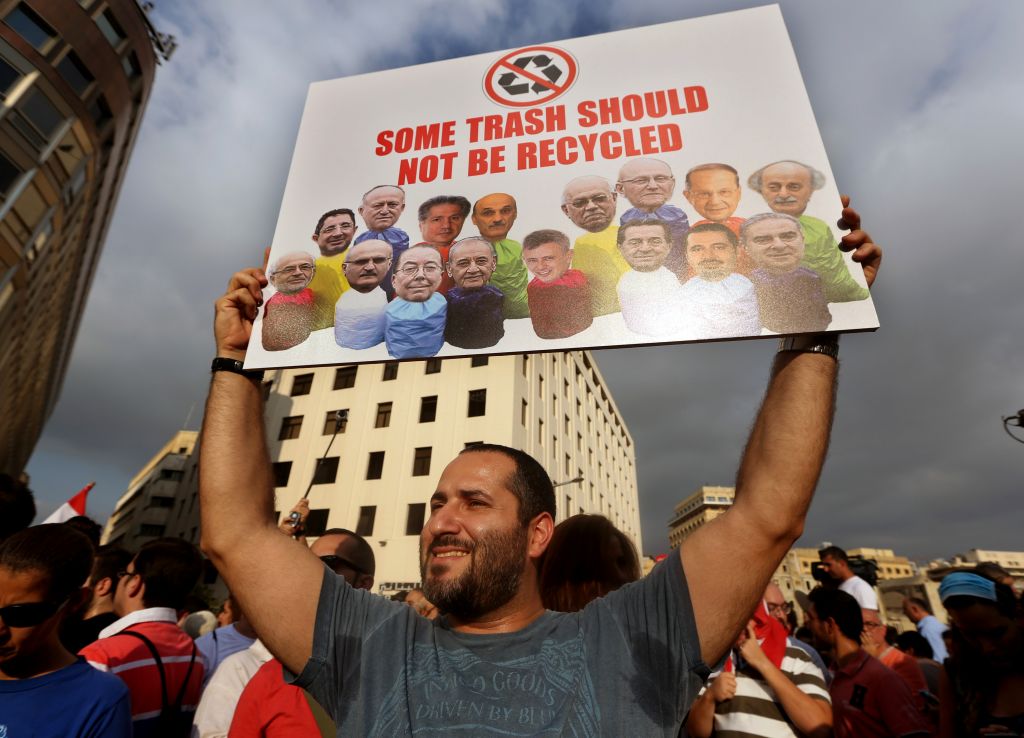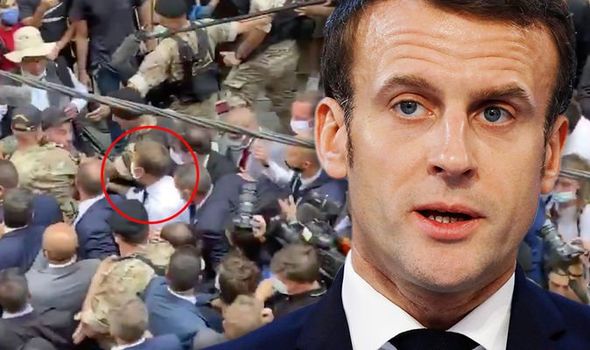The people of Lebanon, many of them having lost their beloved ones, houses and source of income, know what they don’t want , But they still don’t seem to agree on what they really all want or the way forward for their country. They need a strategy of some kind , a road map otherwise the same corrupt politicians will be back if an election is held , a prescription for more chaos and agony, but not change.

Last week’s Beirut explosion was a tipping point. The world is finally waking up to the fact that Lebanon has become the real apotheosis of Churchill’s “blood, toil, tears and sweat” state – at least at a leadership level. It is being run by deeply hapless people.
This has long been Lebanon’s fate, from its painful creation in the 1920s. But this time seems different. The anger, agony and impetus among the young and old, men and women, the poor and the rich to force the change they dream of, has been building for a while. Here we are – seemingly ripe for change, with the international community apparently on board.
The resignation of Prime Minister Hassan Diab’s government, may look like the first step on that road, but you have to remember that the removal of administrations has always been the easier task in the Middle East, what comes next is infinitely harder.
The death toll of the explosion, ignited by thousands of tonnes of Ammonium Nitrate negligently stored in the port, has risen to over 200 and dozens are still believed missing. The internet is awash with videos of protesters surrounding the Baabda presidential palace, the house of parliament and occupying ministries.
Confronting Lebanon’s outrage is beyond the kleptocratic political class’s resilience and ability to survive. But the resignation of the government may not lead to real change. Instead, it may be a way for the current political class to survive.
The majority of Lebanese citizens agree that this time something big has to happen. But the question is: What is the kind of change they all want? And, most importantly, how this change must be realised?
Nobody seems to have the answer. Since the end of the civil war in 1990, Lebanon has been stuck in a political time loop, and no one among the many politicians who have had a hand in running the country has been able – or in many cases willing – to break it.

Three main ingredients have contributed to Lebanon’s current despair. The first is the political class that has risen as the product of the Taif Agreement, which ended the 15-years-long civil upheaval. The system created has been long based on sectarian political quotas given to those associated with the militia leaders who fought each other for years. This system might have been ideal to end the bloody conflict three decades ago, but, just like the sectarian quotas system the US and the UK plagued Iraq with later, it has allowed corruption to thrive.
People who surrounded French President Emmanuel Macron amid his recent visit to the Beirut’s wreckage chanted “Revolution” and “the people want the fall of the regime”. Many still maintain the “all of them means all of them,” slogan that has been a part of the mass protests. But despite last week’s ghastly tragedy, the sheer scale of corruption and incompetence, there should be no romantic illusions about quick change rising from the ashes of Beirut’s port.

In such a nation as Lebanon, a voice for all is important – but there has been little evidence that Lebanon’s Sunni, Shia, Christian Maronite and Druze leaders can work together effectively. There is little change of leaders in these communities losing elections, they have not completely lost the support of members of their individual constituencies – or they will at least be replaced with leaders with similar views. The cycle will just perpetuate.
The second ingredient that turned Lebanon into a failed state is that, the new constitution, based on the Taif Agreement, helped to push corruption to a whole new level.
The reconstruction process that followed the end of the civil war, led by the late Prime Minister Rafik Hariri paved the way for the sectarian leaders to have shares in the infrastructure projects and put their hands on whole state ministries. This created the kleptocracy that has hampered Lebanon.

The third is Hezbollah’s hegemonic power. After the assassination of Hariri in 2005, political and international pressure led the Syrian forces occupying Lebanon to withdraw. Since then, Hezbollah’s role has inflated dramatically. The new arrangement would make the them the new bouncer of the already broken order, in exchange for an implicit recognition by the political class of its military and political superiority over the whole of Lebanon and the expansion of its geostrategic interests all over the region.
Some anti-Hezbollah critics see the Beirut blast as an opportunity to break the group’s stranglehold, which could ignite a bloody confrontation that can ensure Lebanon’s descent into years of chaos. President Macron seems to understand that. Although he called for a new political pact, his efforts were limited to pressing for a government of “national unity”.
This government will likely be tasked with overseeing a new general election. The election outcome can’t be expected to be different unless the parliament (controlled by the same political elite) approves a new fairer and modern electoral law, which is likely to be a red line for Hezbollah and its allies.
The people of Lebanon, many of them having lost their beloved ones, houses and source of income, know what they don’t want, and that is the current political. But they still don’t seem to agree on what they all want or the way forward for their country.
This is a prescription for more chaos and agony, but not change.
Ahmed Aboudouh is a consultant editor at The Independent. He specialises in Middle East affairs.
The Independent

Leave a Reply
You must be logged in to post a comment.